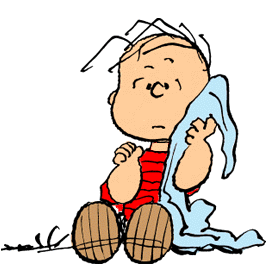Now that I had read "On the Road", traditionally regarded as Jack Kerouac's magnum opus, I knew that it would be time for me to further get into what Kerouac himself called The Duluoz Legend, the books Kerouac wrote about his journeys. I went way off the beaten path to a slight and mind-fucking short novel, "Tristessa". Finally, finally I could see Kerouac's true prose unleashed in all their stream-of-consciousness glory. For the first 20 pages I thought I was high. For the final 74 I was just enjoying the magic carpet ride through the slums of Mexico City, visiting the sick people and seeing dead ends go dead.
This one is a two parter, the first being "Trembling and Chaste", and our narrator, presumably Kerouac himself but I never know, is going back to Tristessa's hole of all homes, and for the next 60 or so pages, we are immersed in the dank and solemn and uncut images of junkie life. He follows with his eyes the pigeon and cat and hen and people sitting around talking and doing morphine shots, while he drinks his drink. Tristessa, the apple of is high, is vividly described as he longs for her, but ultimately refuses her, and in this, reveres her, a common but beautiful junkie. Secondary characters are described, but if this is anything, it is rantings from the lovesick to the drugsick, trying to build bridges that cannot be forged.
The second part, "A Year Later...", tells of the return of Kerouac or whoever to Mexico City to reclaim Tristessa as his third wife. But she is too far gone. Old Bull, the man he used to live next to, who is now renting him a room, a true long-time junkie and the one who funds Tristessa's habit, he is the one, and as he so bluntly says, Give him a beautiful woman in one chair and morphine in the other, he takes the morphine every single time, it's all he needs. And it's all Tristessa needs. And it's not this fact, or this semblance of plot that matters, but the prose, the gut-wrenching pull at your belly and teeth prose, the straight-from-the-brain words Kerouac uses that brings it all home. It's total and utter despondency, and it's incredibly and sadly awe-inspiring.
If anything, the book is an experience. Every image is destruction. There is so much agony packed in, it will totally feed your angst as you read about the downtrodden characters of the underworld. Hope? Last line is, "This part is my part of the movie, let's hear yours", no ending punctuation or anything. It was just a story, one of many, it would seem, so that's as much hope as there is. But the experience is, again, in the prose and the images. "I play games with her fabulous eyes and she longs to be in a monastery" is just too good to come off the top of his head, the ending of a long conversation about faith and what is and what never was, previously saying, "I feel we are two empty phantoms of light or like ghosts in old haunted-house stories diaphanous and precious and white and not-there." Sometimes he rambles and rants and longs so bitterly and it's tough, but you get to the luminous parts, and the true loveliness is in there, even if it's painful.
Another side of Kerouac explored, another part of the legend put to rest. I'd never tell anyone new to Kerouac to pick up "Tristessa" first, but it is an experience I wouldn't trade. It's poetry moving in line with two terrible sicknesses that will never be resolved, the lovesickness and the drugsickness. They can't be resolved, so what's your story?
"Since beginningless time and into the never-ending future, men have loved women without telling them, and the Lord has loved them without telling, and the void is not the void because there's nothing to be empty of."

No comments:
Post a Comment